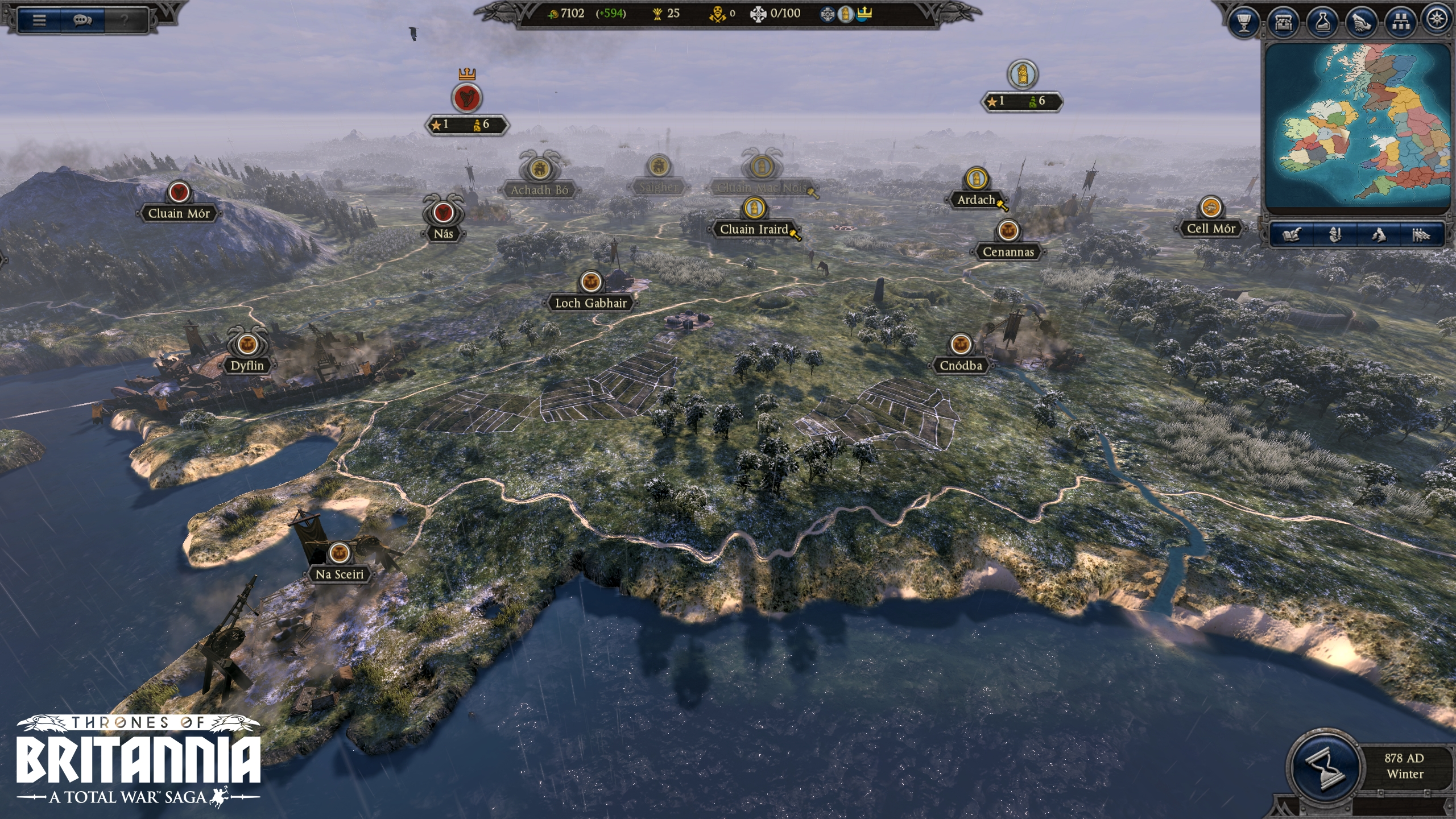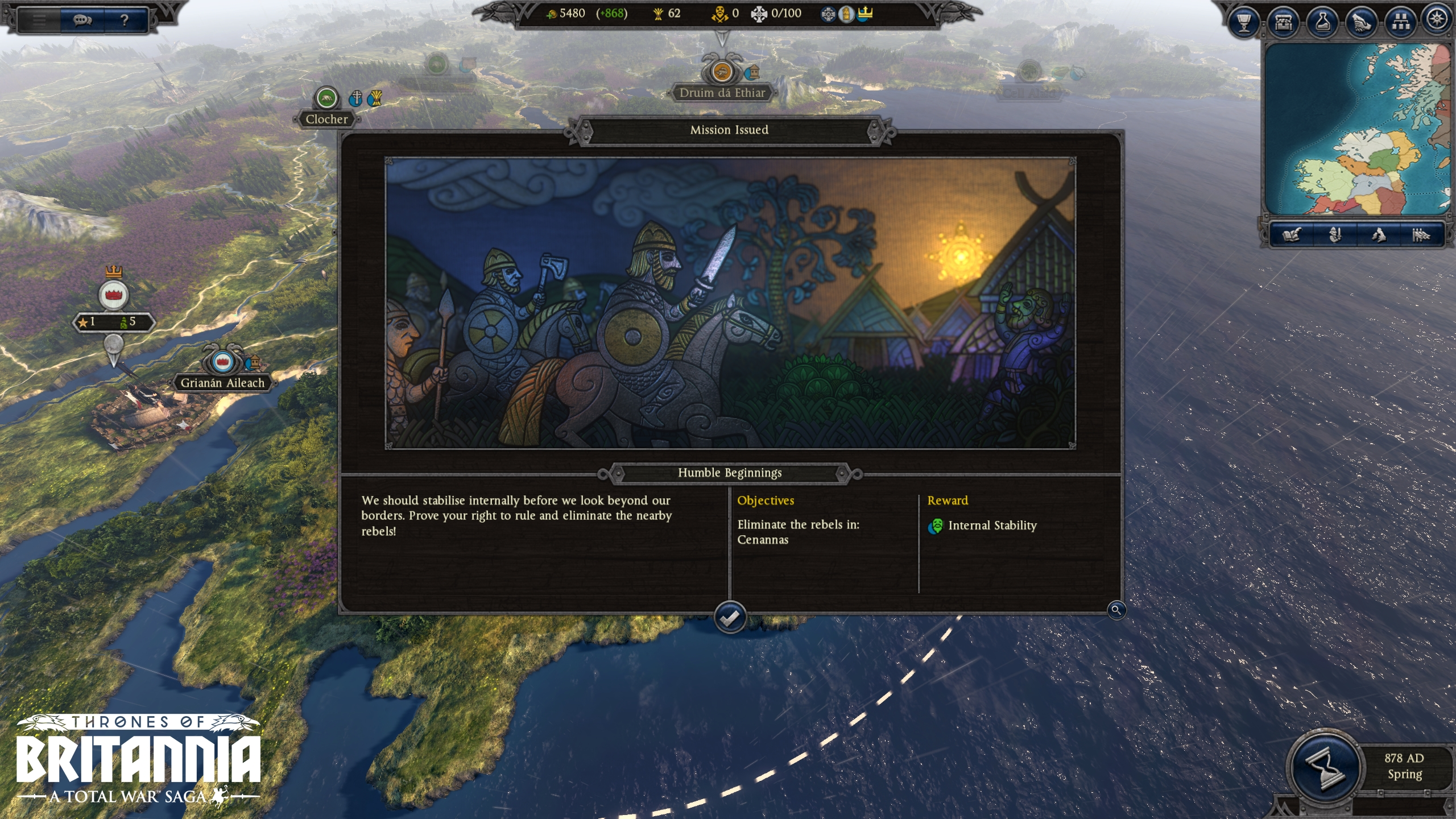

More reliable is gifting your disloyal underlings one of the estates you’ll accrue during your time spent painting the map your colour. Options for subterfuge are many, but a real drain on your coin stash.

Playing as Alfred of West Seaxe, starting with so many provinces also made loyalty and betrayal a very real concern. Initially weak units also mean that attrition can be a serious problem, as starvation or seasickness devastates an already threadbare force. Early on, I made the mistake of leaving weak borders unguarded, and had to make do with hastily cobbled together levy spearmen to defend against sieges. A number of factors affects replenishment, but generally, it makes forethought and planning an absolute necessity. The disadvantage of marching into the pub and thrusting a spear in the hand of whoever hasn’t passed out already is that units are recruited at a quarter total strength. You bolster the ranks of your army from a universal pool that can be accessed from any owned settlement, regardless of buildings. Those coming from Total Warhammer might be disappointed that the most novel thing on offer here is units of ferocious war dogs, but it’s still satisfying to watch a charge of pugilistic puppers who’ve just decided the opposing frontline have biscuits in their pockets. West Seaxe has some seriously nasty late game cavalry, for example, and a few units of Welsh archers with flaming arrows will make short work of an approaching siege tower. Your people might cheerlead a few victories, but years of seeing their countrymen march off to war and never return will eventually take its toll on their happiness.įaction-specific units are few, so personality comes from unit specialities. Common to all factions is a meter tracking your populace’s War Fervour. The Sea Kings collect tribute from other factions, and also take slaves after battle. Welsh factions are bloody heroic, they are, so ranking up heroes and owning Welsh land grants bonuses. Not only can my enemies get in the sea, they can also pay me a tribute for the privilege of drowning.Ī narrative thread running through each campaign influences the direction of the early turns, but so do the faction-specific rules. Two for the regular land vikings and two for the Viking Sea Kings, an aspirational title if ever there was one. There’s two each for English, Welsh, and Gaelic. Thrones of Britannia includes ten different factions split evenly across five cultures. The stained glass and wood carving motif reinforces the sense that you’re writing your personal legend into history, which means it’s always fun to imagine the glassworker who has to immortalise your brutal pillaging in glittering detail. The exclusive focus on the extremely disunited kingdom means a smaller landmass, but densely populated provinces with multiple settlements, each of which can be built up to provide different resources or research paths. Drop down menus make shuffling through armies and provinces intuitive, which you’ll come to appreciate. Helms off to Creative Assembly for making it not only workable, but attractive. This is Total War, however, so before navigating the perils of battle, it’s necessary to navigate the perils of the labyrinthine UI. Truthfully though, like so much of the conflict in history, they had something shiny, and I decided I wanted it. I’d like to pretend their sacrifices come at the bitter end of a long, failed diplomatic campaign. Although I imagine its majesty is somewhat lost on the seven hundred exhausted Welshmen I’ve just ordered to breach the stronghold’s walls, with nothing but battered wooden shields between them and a typical British forecast of flaming arrows. From my vantage point, there’s something enchanting about the snow-capped palisades of Dinefwr.


 0 kommentar(er)
0 kommentar(er)
